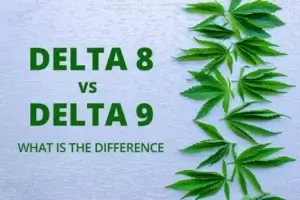Cannabis in Algeria, Algeria, a land known for its breathtaking Mediterranean landscapes, and the world’s largest Sahara Desert expanse, presents a complex and nuanced narrative when it comes to cannabis. It is a tale that intertwines the threads of history, law, societal perceptions, and future anticipations.
Cannabis through the Sands of Time: The Historical Encounter
Cannabis is not a native plant of Algeria. Its roots in the region can be traced back to the Arab invasions and commercial exchanges that interconnected the Arab and African worlds. Despite these historical interactions, cannabis did not extensively permeate the socio-cultural fabric of traditional Algerian society, unlike some societies in Asia or the Americas.
Nevertheless, the geographical position of Algeria, adjacent to Morocco – the world’s leading producer of cannabis resin or ‘hashish’ – has marked the country as a critical transit point in the global cannabis trade. Thus, despite the lack of deeply rooted cultural affinity, the shadow of cannabis has loomed over Algeria’s socio-economic landscape for centuries.
The Iron Fist: Modern Algerian Cannabis Laws
Modern Algeria’s stance on cannabis mirrors its commitment to the global fight against narcotics, public health safeguards, and maintaining societal order. As a signatory to the United Nations Single Convention on Narcotic Drugs of 1961, Algeria treats the cultivation, possession, and sale of cannabis as grave criminal offenses, punishable by severe penalties.
In Algeria’s legal framework, no distinction is made between ‘hard’ and ‘soft’ drugs. Consequently, cannabis shares its classification with substances like cocaine and heroin, with comparable legal implications. Furthermore, Algeria’s current laws do not acknowledge the medical usage of cannabis, thereby preventing potential beneficiaries from legally accessing cannabis-derived therapeutic treatments.
The Social Undercurrents: Perceptions and Realities of Cannabis in Algeria
The legal status of cannabis reflects and shapes societal perceptions. The majority of Algerians view cannabis use negatively, associating it with criminal activities, moral corruption, and health hazards. This perspective is heavily influenced by the traditional values and Islamic principles that discourage the use of intoxicants and prioritize societal well-being.
However, underneath the surface of these conservative attitudes, the undercurrents of cannabis use persist. Despite the strict laws and societal stigma, Algeria grapples with issues related to cannabis trafficking and consumption. A significant proportion of the hashish sourced from neighboring Morocco finds its way into and through Algeria, painting a picture that contrasts starkly with the official narrative.
Unpredictable Winds: The Future Prospects of Cannabis in Algeria
Predicting the trajectory of cannabis laws and attitudes in Algeria is as challenging as forecasting the patterns of its Sahara Desert winds. The present legal and societal landscape indicates a low likelihood of any imminent, radical changes in cannabis-related policies.
Yet, one cannot overlook the global momentum that is increasingly leaning towards the recognition of cannabis’s medicinal potential, leading to a wave of decriminalization and legalization in various regions. This global shift might eventually cast its shadow on Algerian shores, possibly stimulating a reconsideration of the current cannabis policies.
Algeria’s cannabis narrative is a tale of paradoxes and complexities. It’s a tale of a plant whose presence was facilitated by historical events yet never fully assimilated into the cultural identity; of societal attitudes that vehemently oppose its use, yet cannot fully suppress its clandestine presence; and of a future that’s as unpredictable as the desert winds. Algeria’s unique narrative adds depth to the global conversation on cannabis, emphasizing that each region’s story is shaped by its individual history, cultural nuances, societal values, and legal contexts.






